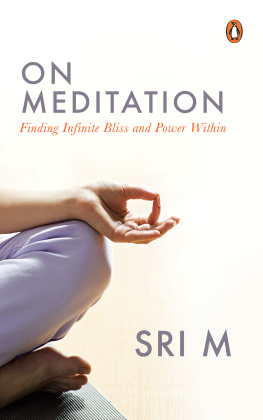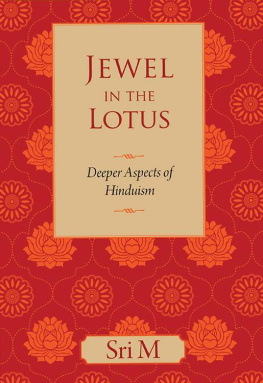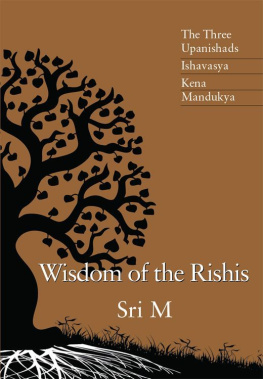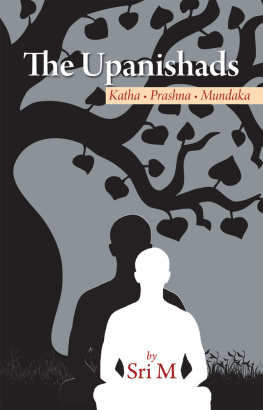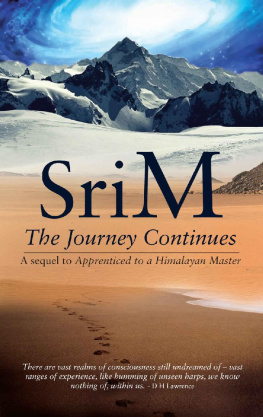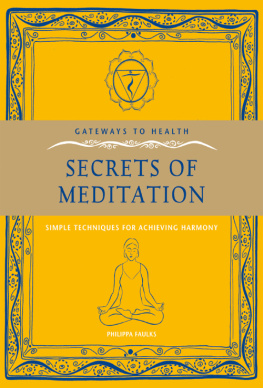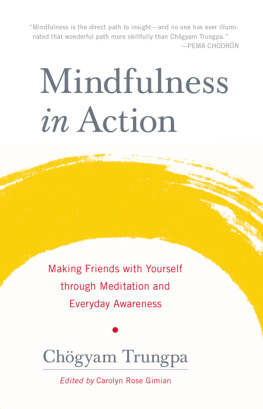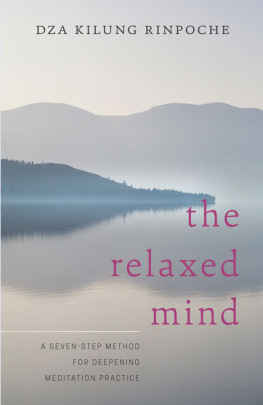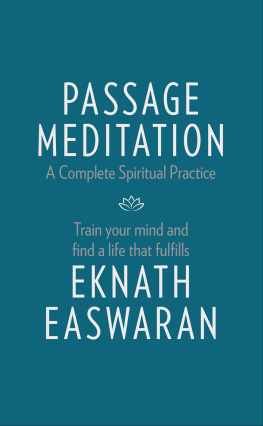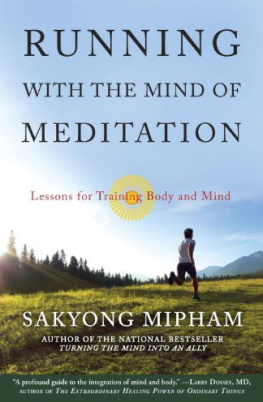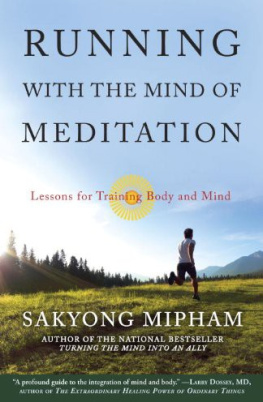1
WHY SHOULD WE MEDITATE?
Q: What is meditation?
M: Meditation is a very wide concept. The usage of the word meditation in English refers to three of the parts of Patanjalis Yoga Sutrasdharana, dhyana and samadhi.
Dharana means the capability or the capacity or the practice by which one can put ones mind exclusively in one stream of thought. When that matures and becomes a continuous process, then that dharana becomes dhyana. When that dhyana can be sustained for a continuous period, then one can experience and understand what samadhi is.
Many a time, when a question like this is asked, a person is asking about a technique. All practices for meditation that are prescribed in the Yoga Sutras of Patanjali are included when we discuss meditation. The actual experience comes only with practise and this may be specific to an individual. However, practising the techniques is a good start. Patanjali describes this exercise of constant and continuous practise over a long period of time as nairantaryaabhyasena
When we can do this for a length of time with absolutely no distractions, then we enter into a state where we forget that we are even meditating. There is only that state. That is called meditation.
The object you are meditating on, the meditator and the process all become one. Once you experience this, all other definitions simply become techniques towards the goal. There is no reaching out or grasping. Just being. There is a cessation of all movement.
Remember, this can come about only because of the practise of a technique that has been taught. So, until you reach that point, the practise of the technique that has been taught to you, is what is considered meditation up until that time. And reading about it is not a remedy. While reading initially does help, regular practise cannot be compromised. You need constant practise over a long period of time, dheerghakale.
Now, a wonderful thing happens once you reach a certain stage in your meditation. Whatever you are doing, anywhere, in any situation, there is a constant stream of inner bliss, independent of anything else. This is something permanent and is what we are all seeking. This is what Omar Khayyam is alluding to in his Rubaiyat. Patience and one-pointed attention are required!
Q: Why should we meditate?
M: Let me start with a story which gives a clue as to what we are trying to connect with when we meditate.
Imagine that youre standing on the street and looking at the footpath. You see a man slowly walking along the street. He is old, looks very weak, with a bundle of clothes over his shoulder. You think hes some kind of a beggar, breathing hard and slowly trudging along. He looks as if he might fall on the ground and die at any moment. Now, imagine a bus coming, and at the last moment, the driver notices the man and brakes suddenly. The bus screeches to a halt blaring its horn; nine times out of then, this poor man, who you think cannot move another inch, who you think will fall over and die, will clear all long jump records when he sees that the bus is about to hit him.
The question is: How did he do it? Somebody looking at the man from the outside would think he cannot move another two steps! He looked so weak and vulnerable! What happened to him when he suddenly faced the danger of the bus hitting him? How did he clear the long jump record from this side of the road to the other? That is the question.
There are many ways of looking at this. The first is, suddenly faced with a threat, he jumped. But where did this energy come from?
The second is a medical or biological explanation. In the brain, there is a section called the limbic system which is there to alert you and to make you react when there is a sudden threat to your life. Its a built-in feature of the old reptilian brain. So, when the limbic system is set into action, the man reacts. Specifically, there is a switch in the limbic system which suddenly pumps a large amount of adrenaline into his system. This adrenaline temporarily gives him the energy to jump. These are chemical and biological explanations.
The yogic or Vedantic explanation says that the mans past experiences up until this point have led to thought processes that made him think he is old, he is weak, he is going to fall over and die, etc. While these thoughts were constantly going on in his mind, at that particular time of danger when the limbic system set things into operation, he had no time to think. He had no time to think and condition himself with the thought that he cannot do it.
Thought is a powerful weapon. It can be limiting and it can be un-conditioning, both! In this case, in his normal mode of existence, he puts two and two together very logically and thinks I was in the hospital six months ago; Im weak in my legs and I cant jump..., so on and so forth. But, in that particular moment of danger, he didnt have time to think and condition himself to say I cannot do this.
Thought can condition you and make you think that you cannot do something, and thought can also be conditioned to say, Yes, I can do it! Im not saying you shouldnt think; you should think. Dont put your thinking faculties in cold storage, especially when there are gurus roaming around. But in this case, to protect the body, a split-second of energy came from beyond ordinary thought. The energy said, Jump! and the man jumped.
Now, that energy, which was accidentally triggered off in this case, can be tapped systematically and utilized for your life.
First, it can be used to un-condition the mind and make it more expansive, and second, it can be utilized to gain access to infinite modes of energy.
If thoughts such as I am this body, I am a man, Im a woman, Im a child, or I am an old person, can be un-conditioned, or at least set to rest for a while, then its possible to access that source of all energy that is within us. Fortunately, this happens to be a blissful energy and not a painful energy.
From ancient times, for thousands of years, people in the East and the West, but especially in the East where people were more concerned with what was going on within, have discovered that there is an essence of all energy. There is an un-conditioned consciousness and bliss which is in all of us in the form of a little spark inside of our being, in the core of our being. The prerequisite for touching that is that you decondition yourself from the thought that I am limited, I am this body, I cannot do this and I cannot do that.
The conditioning process, on one side, is philosophical, and on the other side, it is practical.

